Informed Consent in Indigenous Healthcare: Challenges and Solutions
VerifiedAdded on 2023/06/04
|15
|1571
|62
Presentation
AI Summary
This presentation delves into the critical topic of informed consent within the context of Indigenous healthcare, examining its ethical, legal, and administrative dimensions. It begins by defining informed consent and its importance in healthcare, emphasizing patient autonomy and the right to make informed decisions. The presentation highlights the unique challenges faced when obtaining informed consent from Indigenous populations, including language barriers, cultural differences, and historical mistrust. It discusses the multifaceted benefits of informed consent, from ethical considerations to legal and administrative compliance, while also acknowledging the barriers and challenges that can hinder the process, such as misunderstandings, religious beliefs, and past experiences. The presentation explores the relationship between informed consent and the delivery of care to Indigenous patients, emphasizing the need for culturally appropriate communication skills and approaches. It concludes by offering personal reflections on the importance of informed consent and the need for healthcare professionals to develop action plans that are culturally sensitive. References from various scholars are included to support the arguments made throughout the presentation, providing students with a comprehensive understanding of this important topic.
1 out of 15
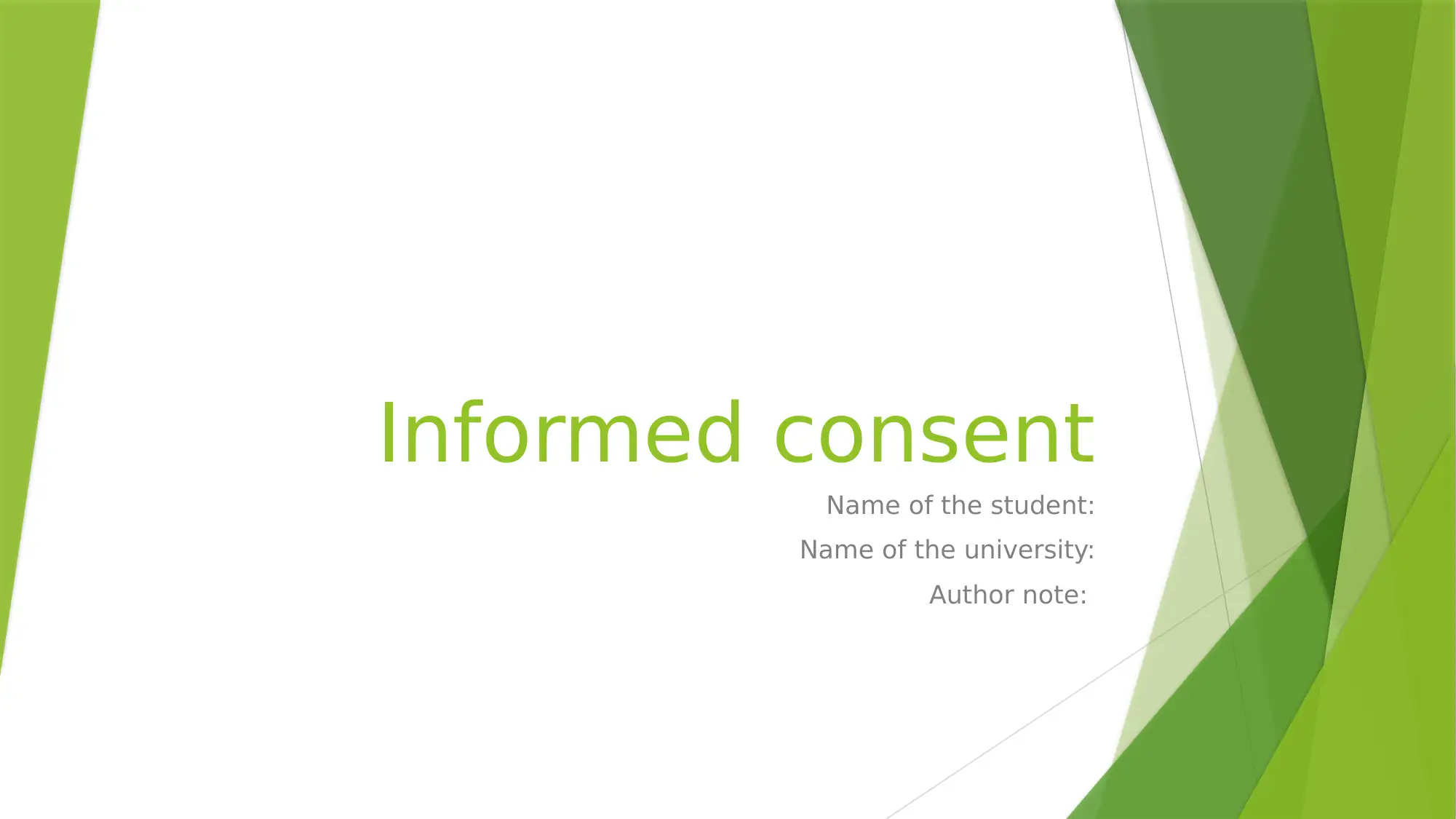
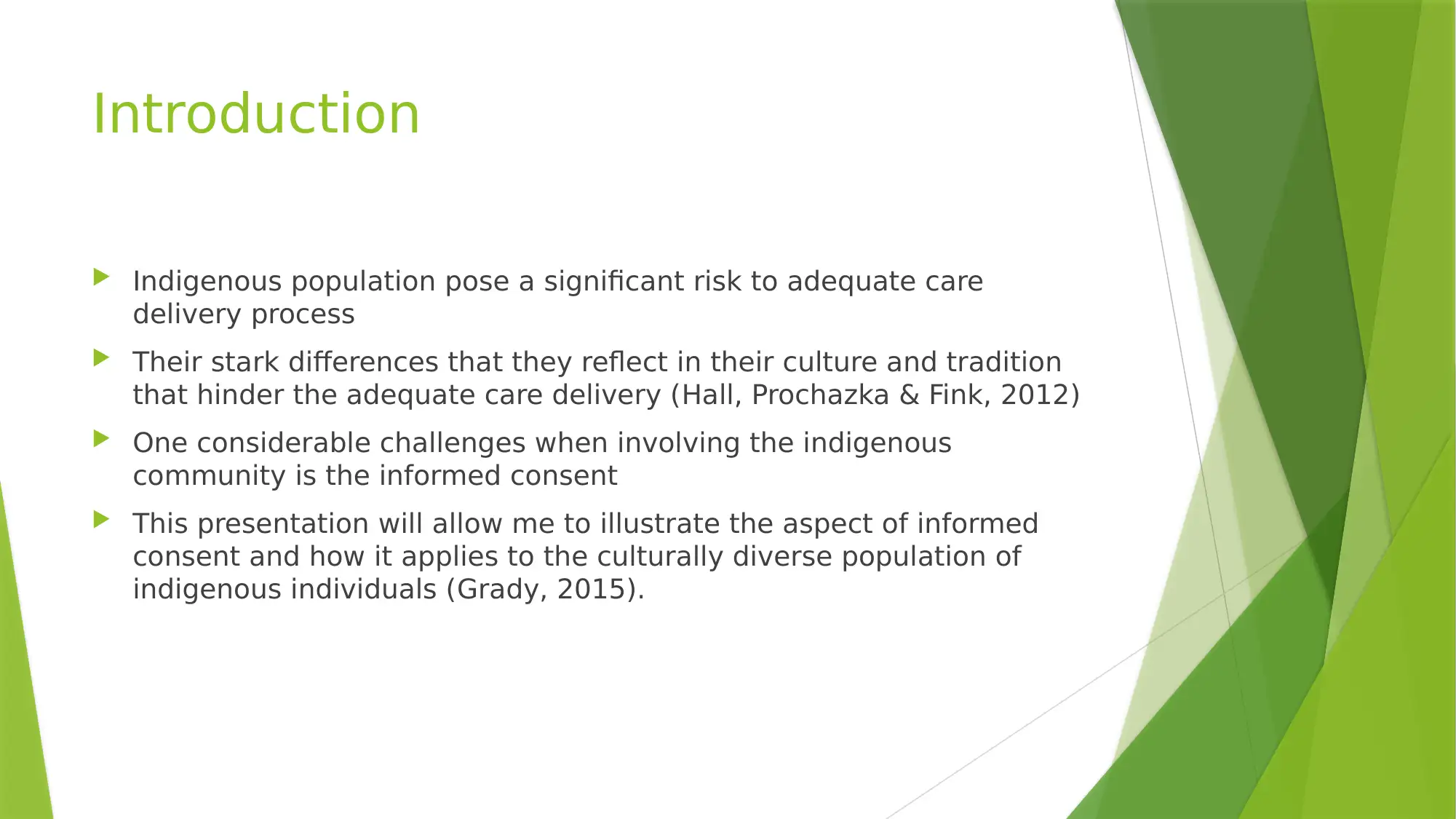
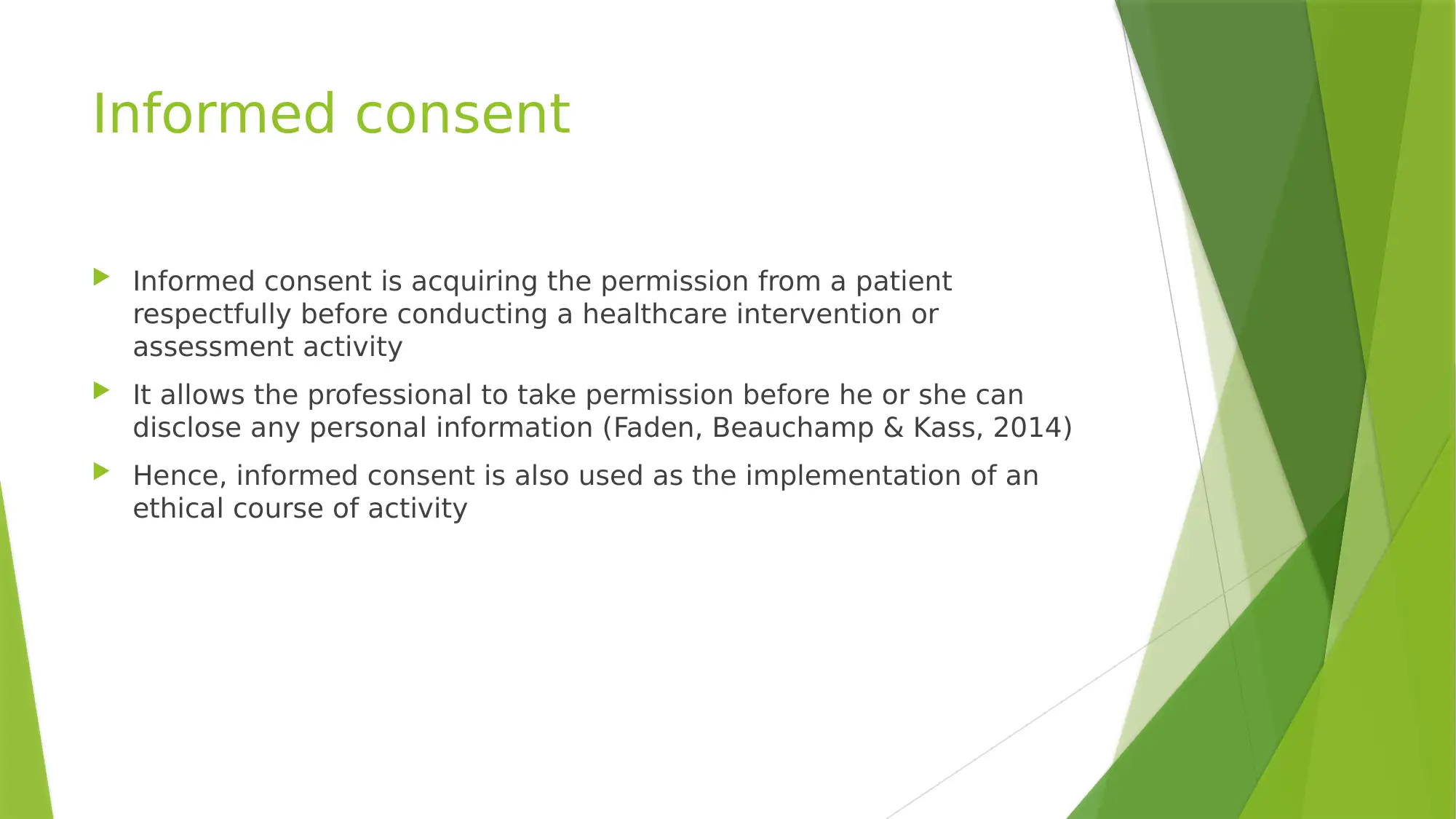

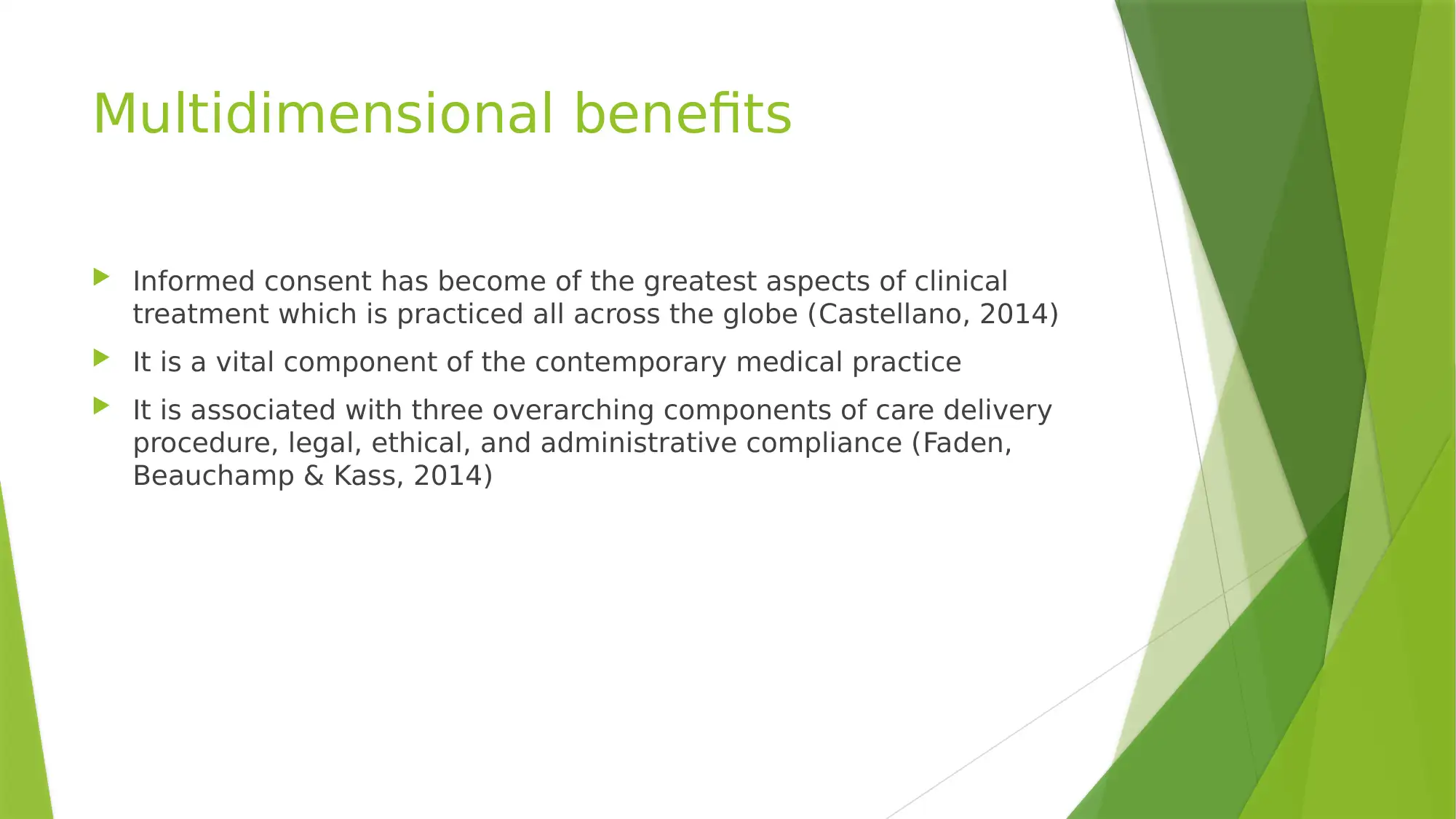
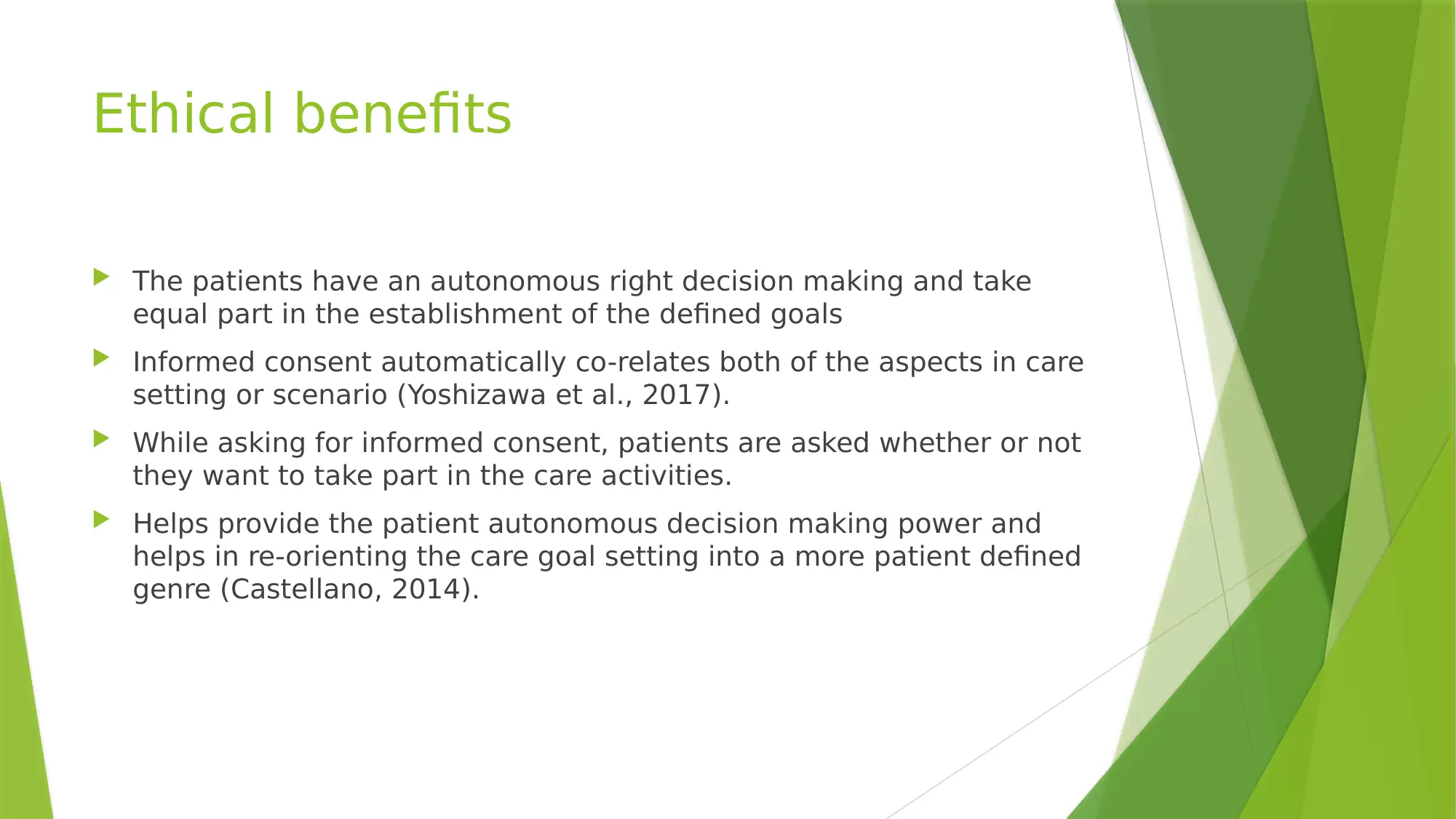
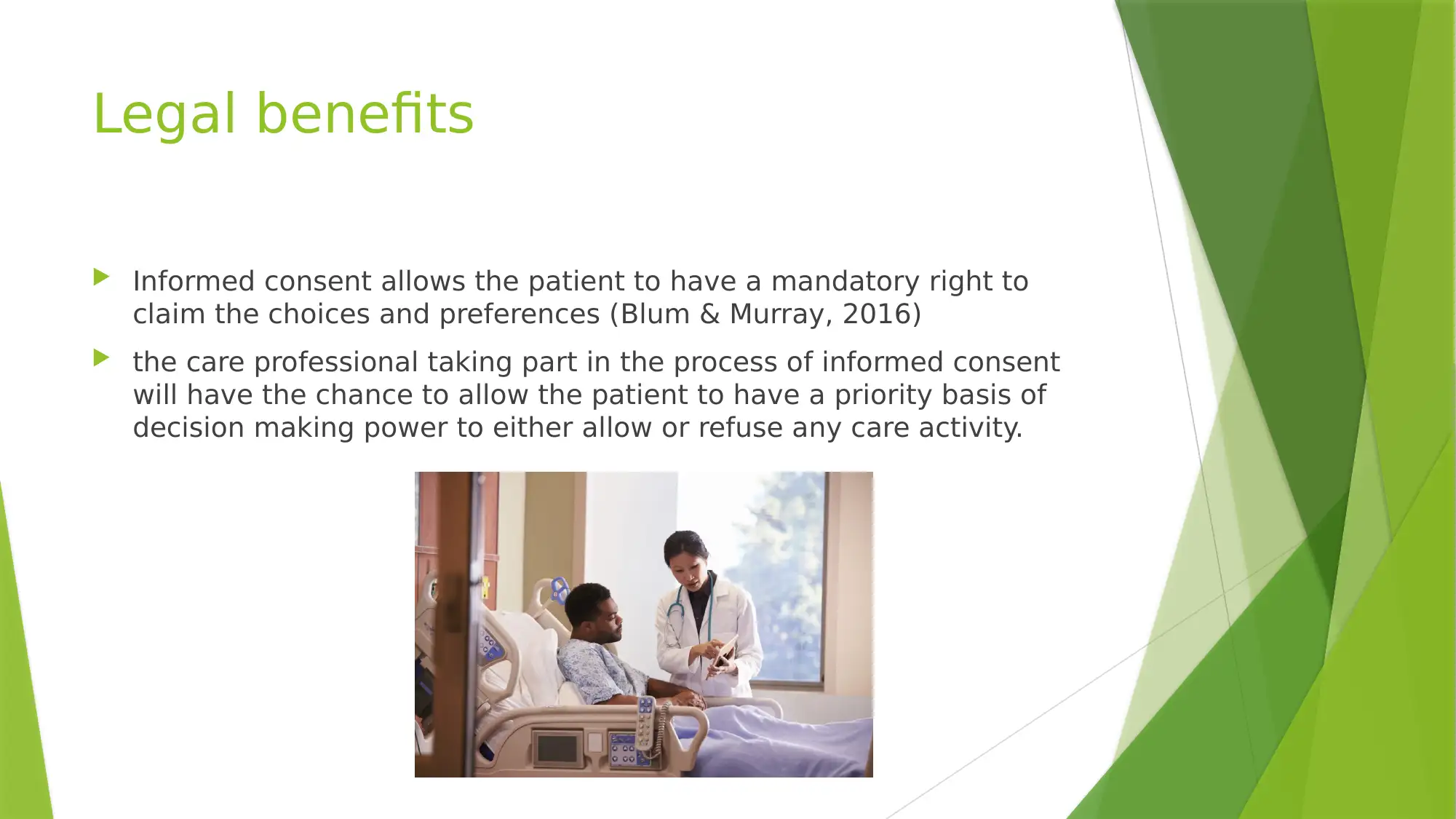
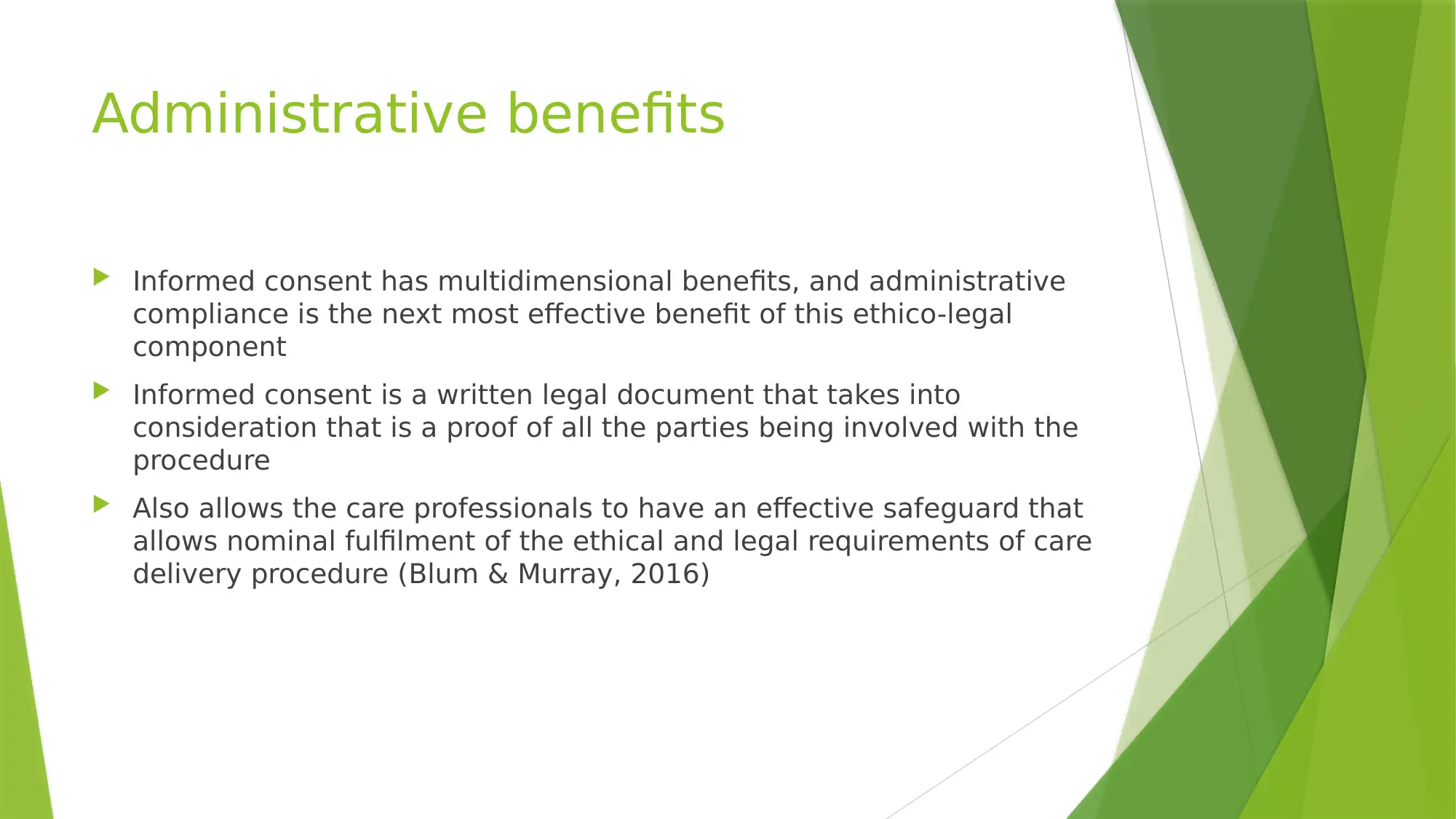
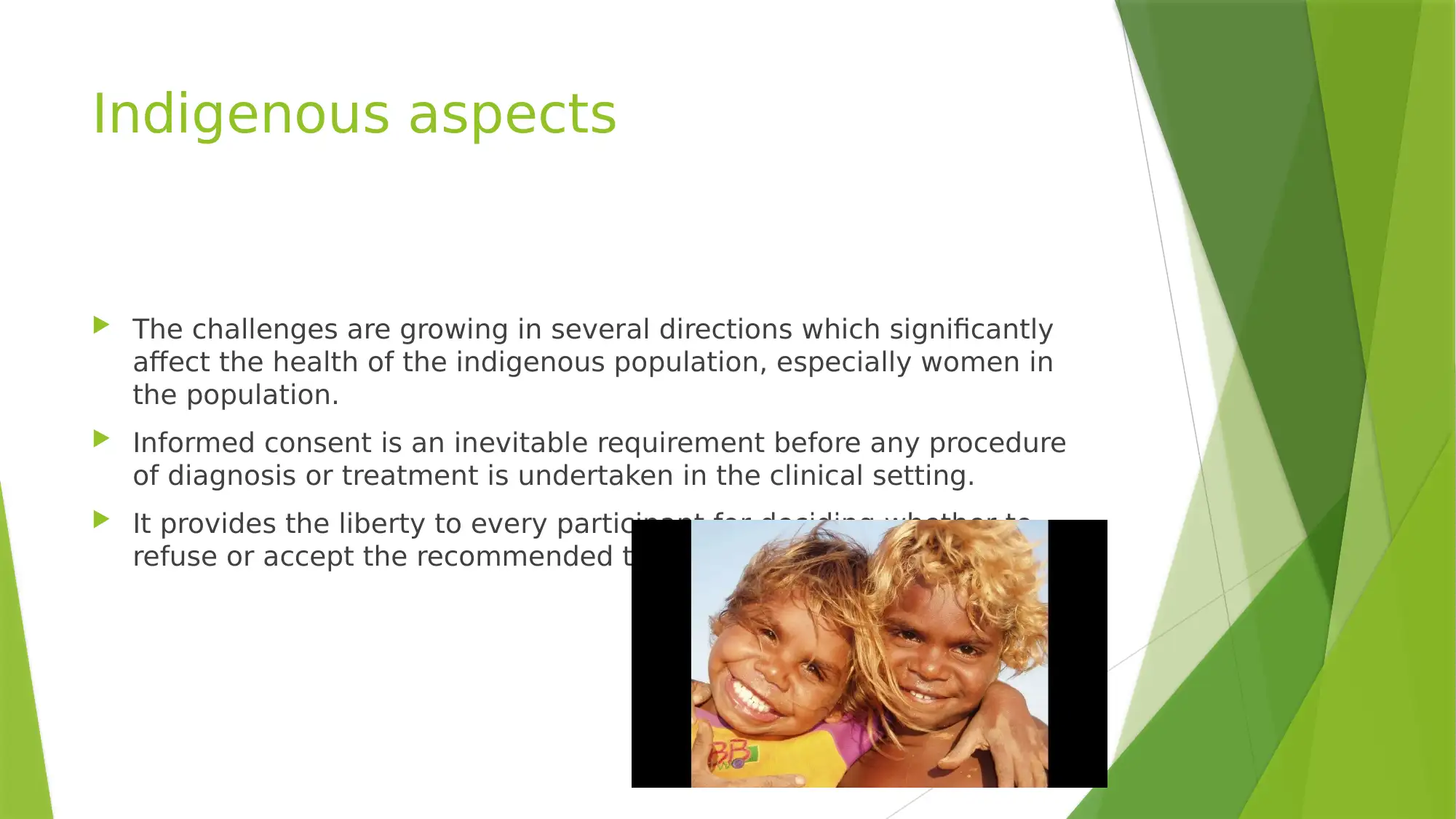
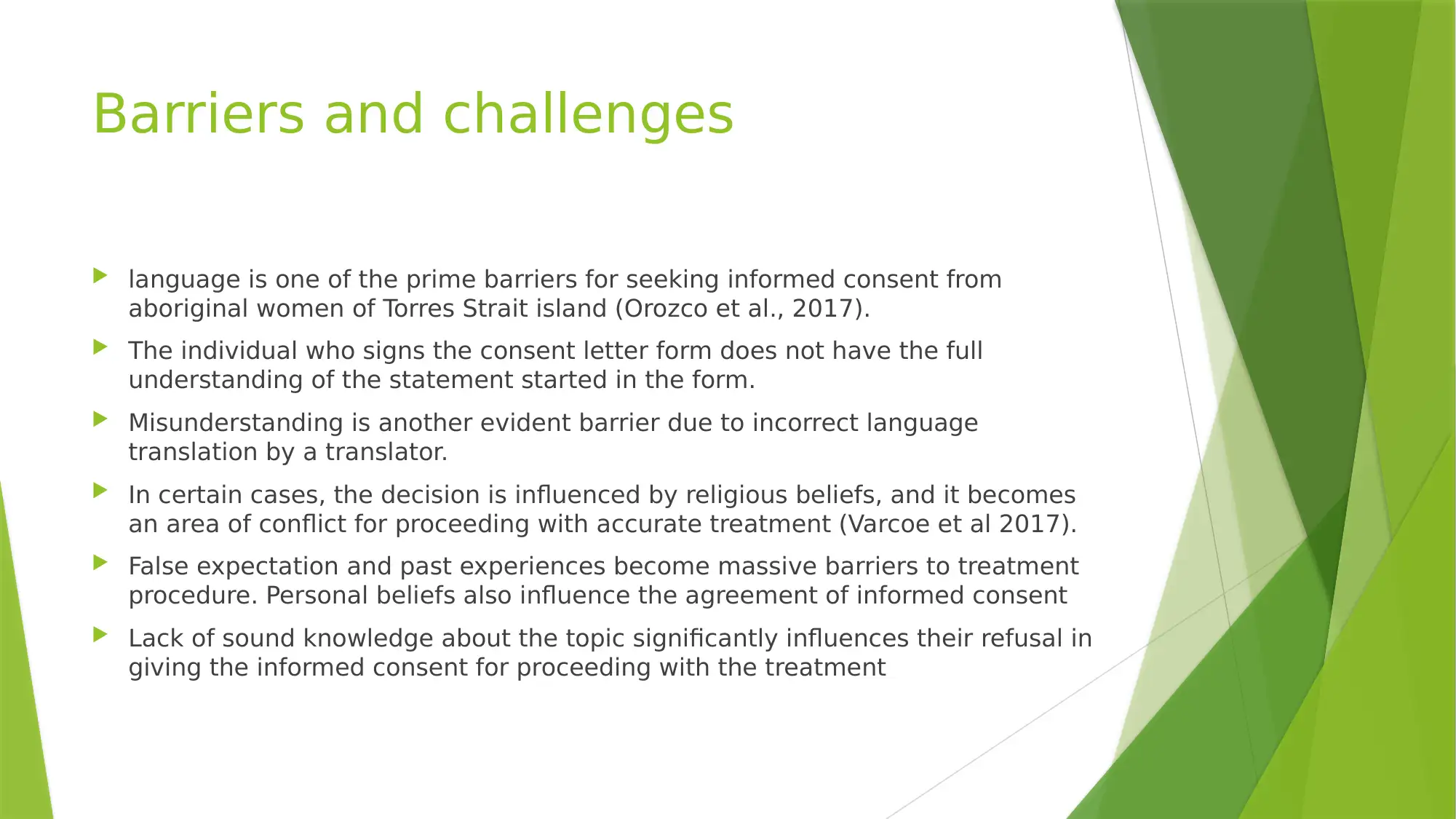
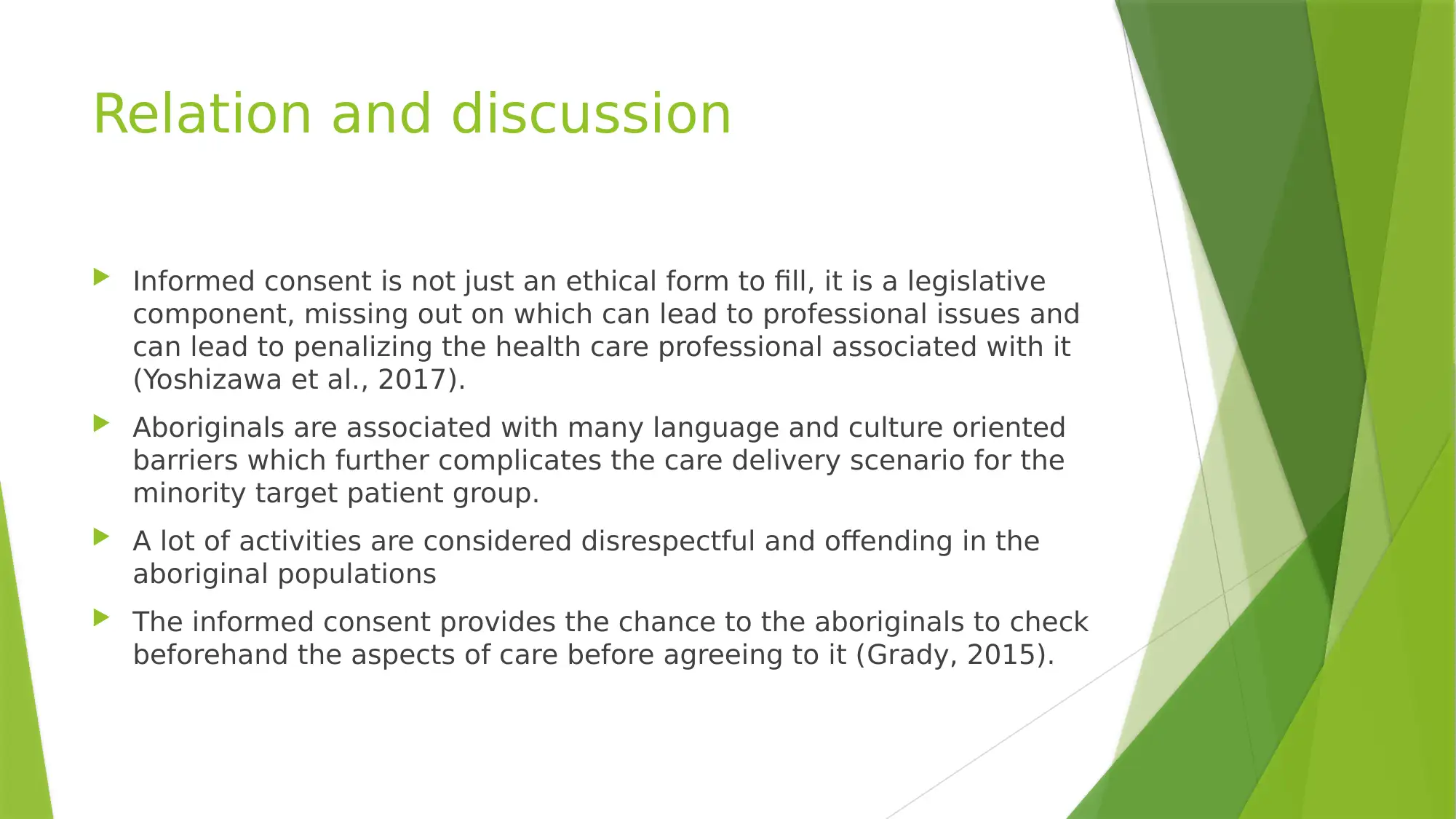
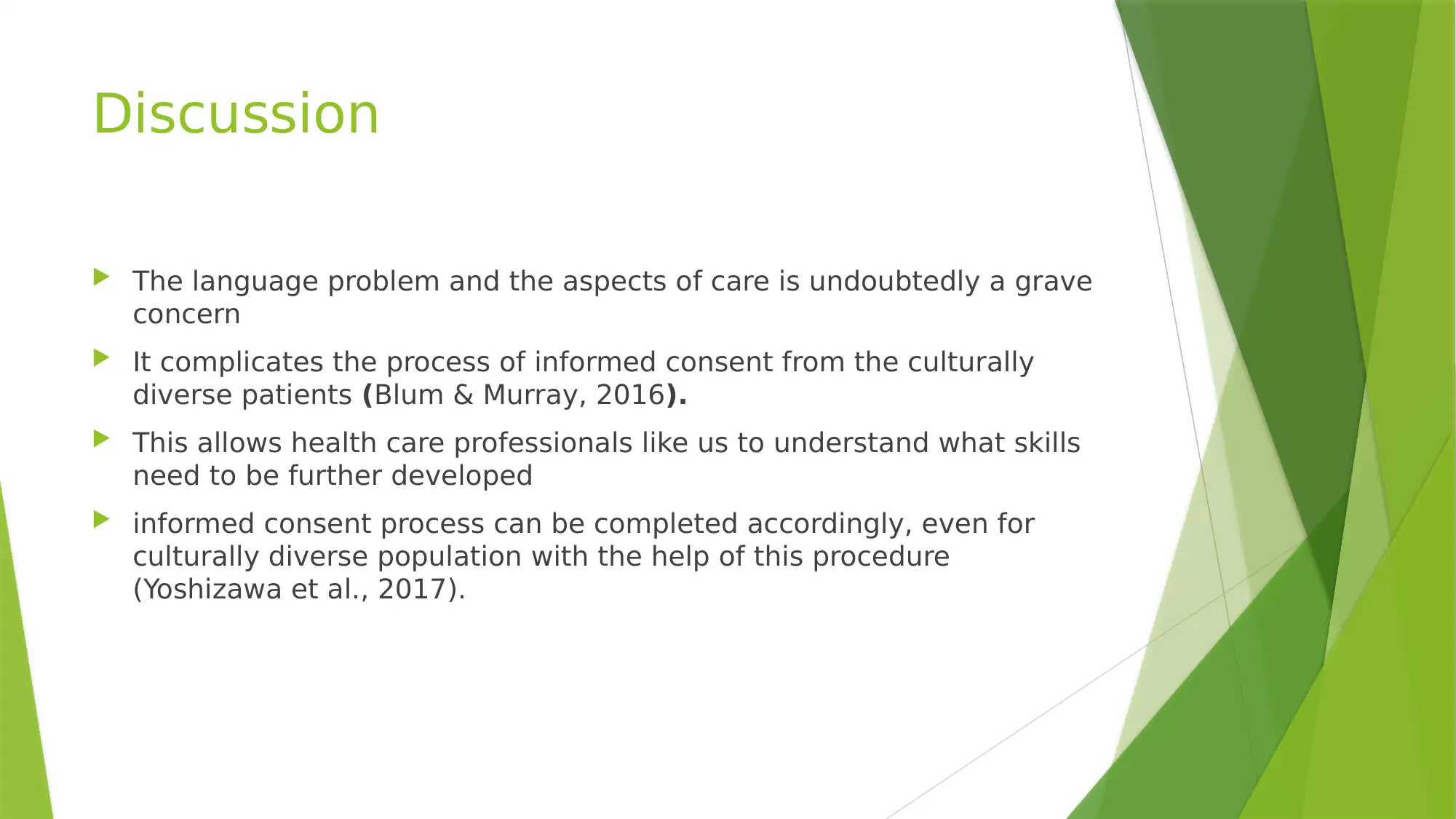
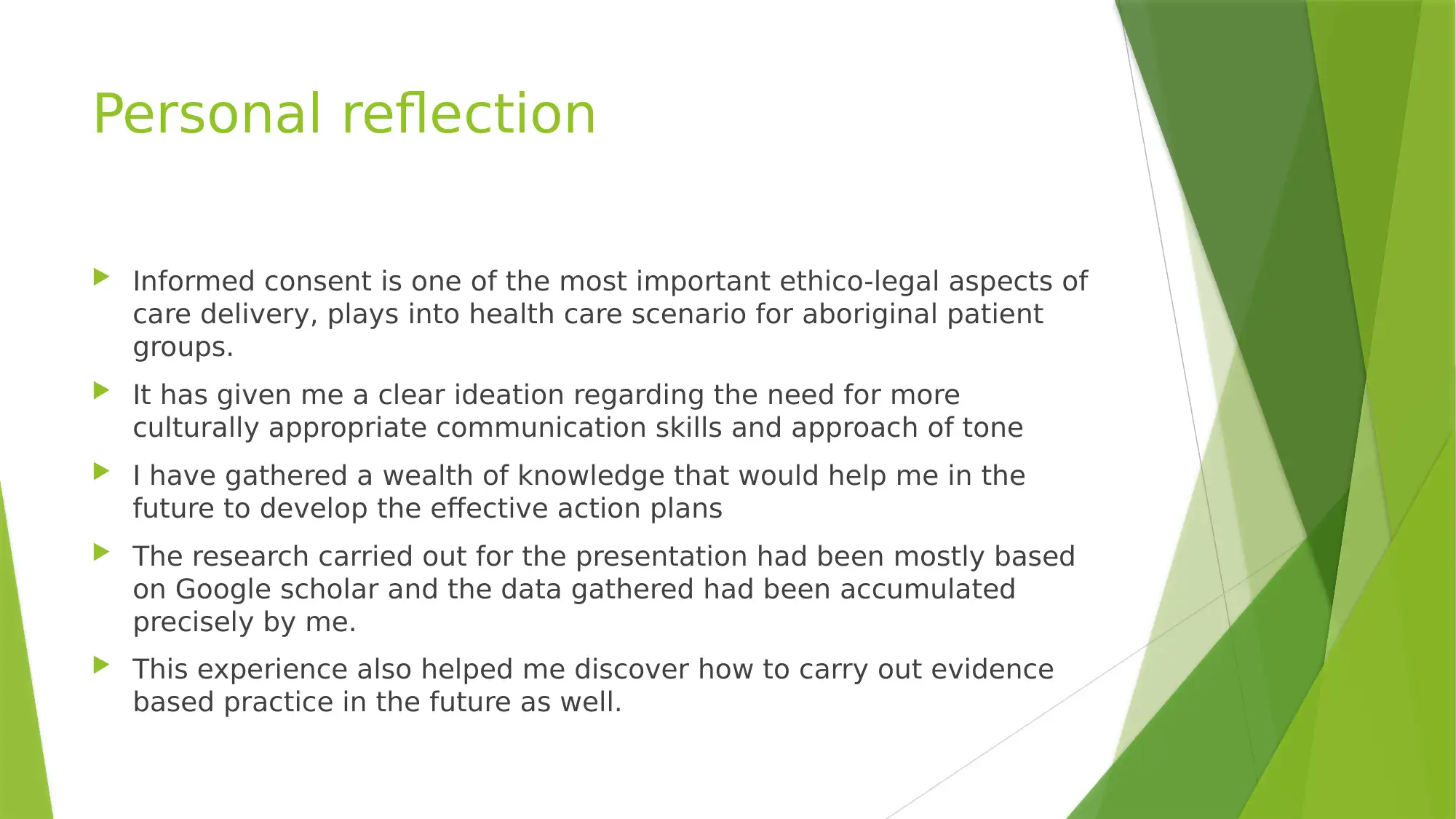






![[object Object]](/_next/static/media/star-bottom.7253800d.svg)